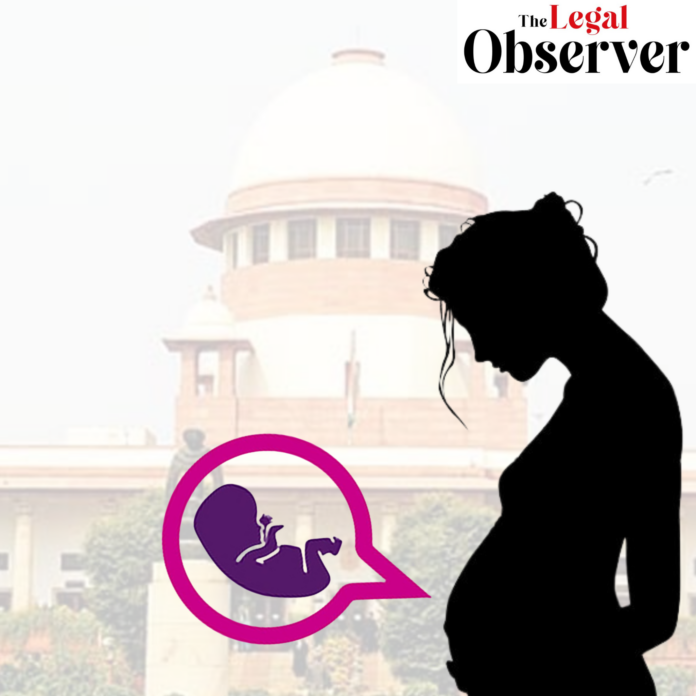The Supreme Court will examine the validity of the age restriction of 35 years for conducting preconception and prenatal diagnostic tests.
The court issued a notice in a petition filed in 2019 by a lawyer Meera Kaura Patel who contended that the age restriction of 35 years in Section 4(3)(i) of the Preconception and Pre-natal Diagnostic Techniques (Prohibition of Sex Selection) Act, 1994 is a restriction on the reproductive rights of women.
The PreConception and Pre-natal Diagnostic Techniques (PCPNDT Act) prohibits pre-natal sex selection. The law was made to curb the evil of female foeticide.
The petitioner referred to the recent judgment of the Supreme Court in X vs. The NCT of Delhi 2022, which upheld the rights of women to make reproductive choices to contend that the provision would not stand judicial scrutiny.
The bench of justice Sanjay Kishan Kaul and Abhay S. Oka made statements and issued notices restricted to the above aspects.
Pre-natal diagnostic tests mean ultrasonography or any test or analysis of amniotic fluid, chorionic villi, blood or any tissue or fluid of a pregnant woman.
Section 4 of the PCPNDT Act provides for the regulation of pre-natal diagnostic techniques. Pre-natal diagnostic techniques can only be conducted for the purposes of detection of any of the following abnormalities:
(i) chromosomal abnormalities;
(ii) genetic metabolic diseases;
(iii) haemoglobinopathies;
(iv) sex-linked genetic diseases;
(v) congenital anomalies;
(vi) any other abnormalities or diseases as may be specified by the Central Supervisory Board.
It further provides that no pre-natal diagnostic techniques shall be used or conducted unless the person qualified to do so is satisfied for reasons to be recorded in writing that any of the following conditions are fulfilled such as:
(i) age of the pregnant woman is above thirty-five years;
(ii) the pregnant woman has undergone two or more spontaneous abortions or foetal loss;
(ii) the pregnant woman had been exposed to potentially teratogenic agents such as drugs, radiation, infection or chemicals;
(iv) the pregnant woman or her spouse has a family history of mental retardation or physical deformities such as spasticity or any other genetic disease;
(v) any other condition as may be specified by the Central Supervisory Board.
Supreme Court Judgment in recent Abortion Case
In the abortion case of the X vs Head of Government Department of Health and Family Welfare Delhi NCT Supreme Court ruled that all women are entitled to safe and legal abortion and that there is no rationale in excluding unmarried women from the scope of regulation 3B of the MTP Rules.
It also mentions the categories of women who can seek an abortion during pregnancy in the term 20-24 weeks. However, the court has made clear that nothing in this judgment should be construed as watering down the provisions of the PCPNDT Act.






